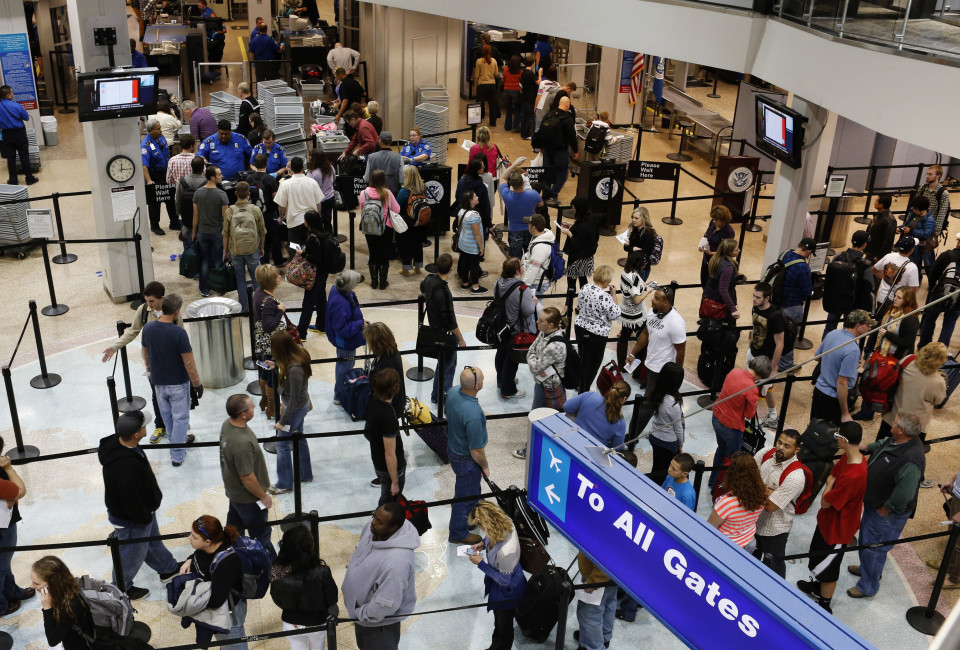
Shoplifters are having a field day these days as in-store shopping returns to normal.
This is causing what is known as shrinkage in accounting. It happens when a store has fewer items in stock than in its recorded book inventory. Factors contributing to shrinkage include employee theft, shoplifting, administrative errors, vendor fraud, product damage and more.
Target Corp., which predicted this problem to happen as early as November, expects the high shrink rates to reduce gross margins for the recently completed fiscal year by more than $600 million. TJX Co.'s and Macy's Inc. also noted higher shrink rates in recent calls with analysts.
"Theft is growing at a faster rate than sales," said Dean Rosenblum, a senior U.S. retail analyst at Bernstein Research. Rosenblum said theft is becoming a big enough problem that it's starting to affect margins, which is why retailers are talking about it more frequently.
Shrink rate data for 2022 is not yet available. It declined in 2021 after rising in 2020 and 2019, according to a survey of 63 retailers conducted by the National Retail Federation (NRF) and the Loss Prevention Research Council.
External theft, which includes organized retail crime in addition to regular shoplifting, has become a bigger problem.
Organized retail crime – involving rings that steal from stores in bulk and then peddle the goods online – cost retailers nearly $720,000 for every $1 billion in sales in 2019. That was an increase of 50 percent from 2015, the NRF noted.
"Seven years ago, internal theft was the largest category of loss by retailers," said David Johnston, the NRF's vice president of asset protection and retail operations, referring to theft by employees. "Now, it's external theft."
Human knowledge is under attack! Governments and powerful corporations are using censorship to wipe out humanity's knowledge base about nutrition, herbs, self-reliance, natural immunity, food production, preparedness and much more. We are preserving human knowledge using AI technology while building the infrastructure of human freedom. Speak freely without censorship at the new decentralized, blockchain-power Brighteon.io. Explore our free, downloadable generative AI tools at Brighteon.AI. Support our efforts to build the infrastructure of human freedom by shopping at HealthRangerStore.com, featuring lab-tested, certified organic, non-GMO foods and nutritional solutions.
Mask mandates give shoplifters perfect cover without arousing suspicion
Retailers are combating the problem by adding security guards and cameras in stores, locking up goods and making use of facial recognition software to help identify repeat offenders.
However, facial recognition software doesn't help much when customers are wearing face masks.
In July 2020, Walmart announced the implementation of mask mandate in its 4,800 branches, as well as the approximately 600 Sam's Clubs stores in the United States.
"As the number of confirmed cases has spiked in communities across the country recently, so too have the number and types of face-covering mandates being implemented," said Walmart in a news release published on July 15 that year.
On that same day, Best Buy required all shoppers to wear face masks in all of the company’s approximately 1,000 stores across the United States.
These mandates could help explain why shoplifters thrived in 2020. The stores let them cover their faces without arousing suspicion.
Organized retail crimes are also prevalent in states that are soft on crimes.
In California, for instance, the theft of goods worth less than $950 has been classified as a nonviolent misdemeanor since 2014. This led to an ongoing retail crime problem that caused the closure of at least 15 Walgreens stores spanning 2020 and 2021 in San Francisco, California. (Related: San Francisco retail stores cease operations thanks to new law that decriminalizes shoplifting.)
When Walgreens closed a store on Van Ness Avenue in October 2020 due to a spike in crime, the San Francisco Chronicle reported that the store was seeing up to $1,000 worth of merchandise being stolen each day.
This video is from the Recharge Freedom channel on Brighteon.com.
More related stories:
Target lost $600 million in profits this year due to shoplifting and looting.
Businesses continue to shutter in San Francisco due to rampant shoplifting.
Walgreens closing 5 more San Francisco stores due to organized shoplifting.
Sources include:
Please contact us for more information.




















